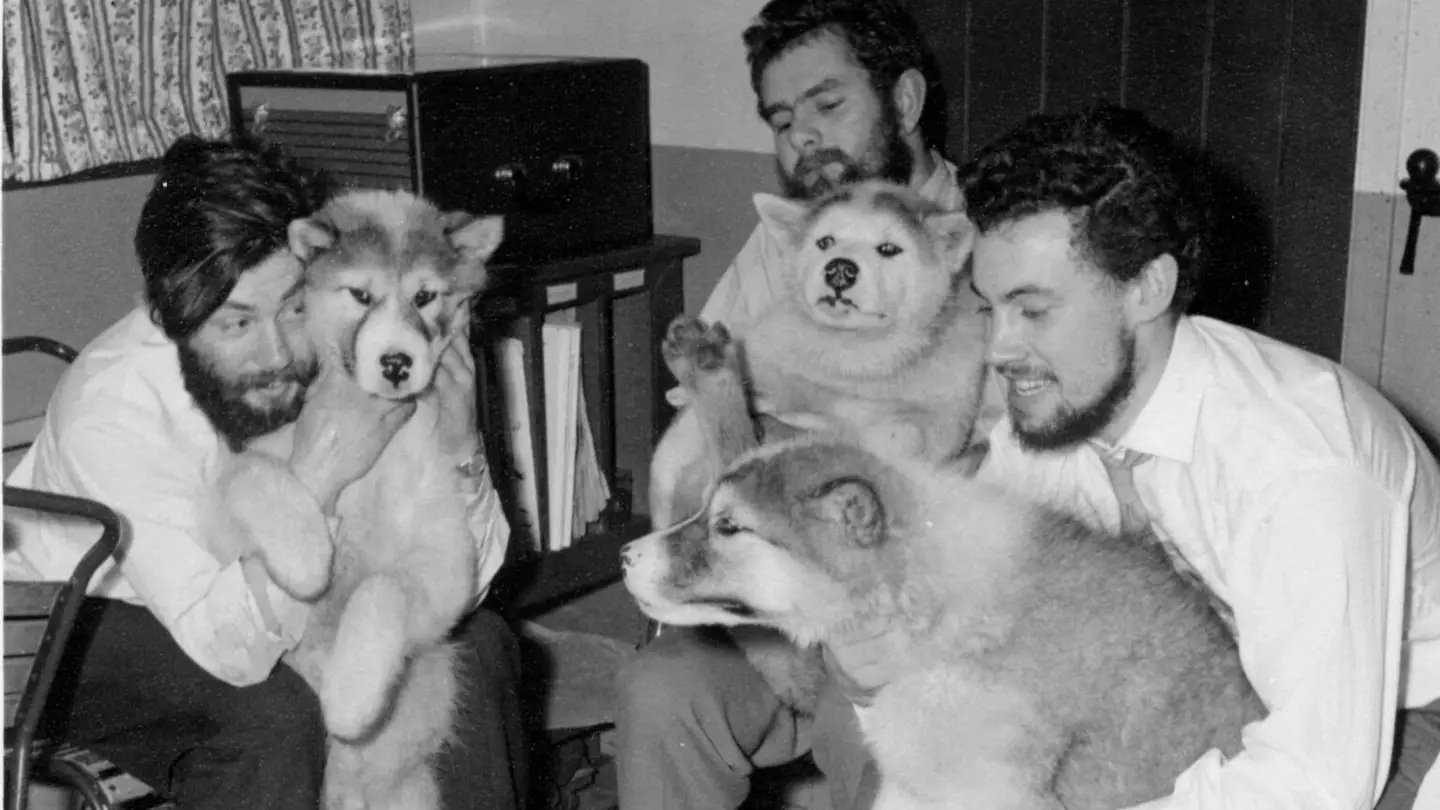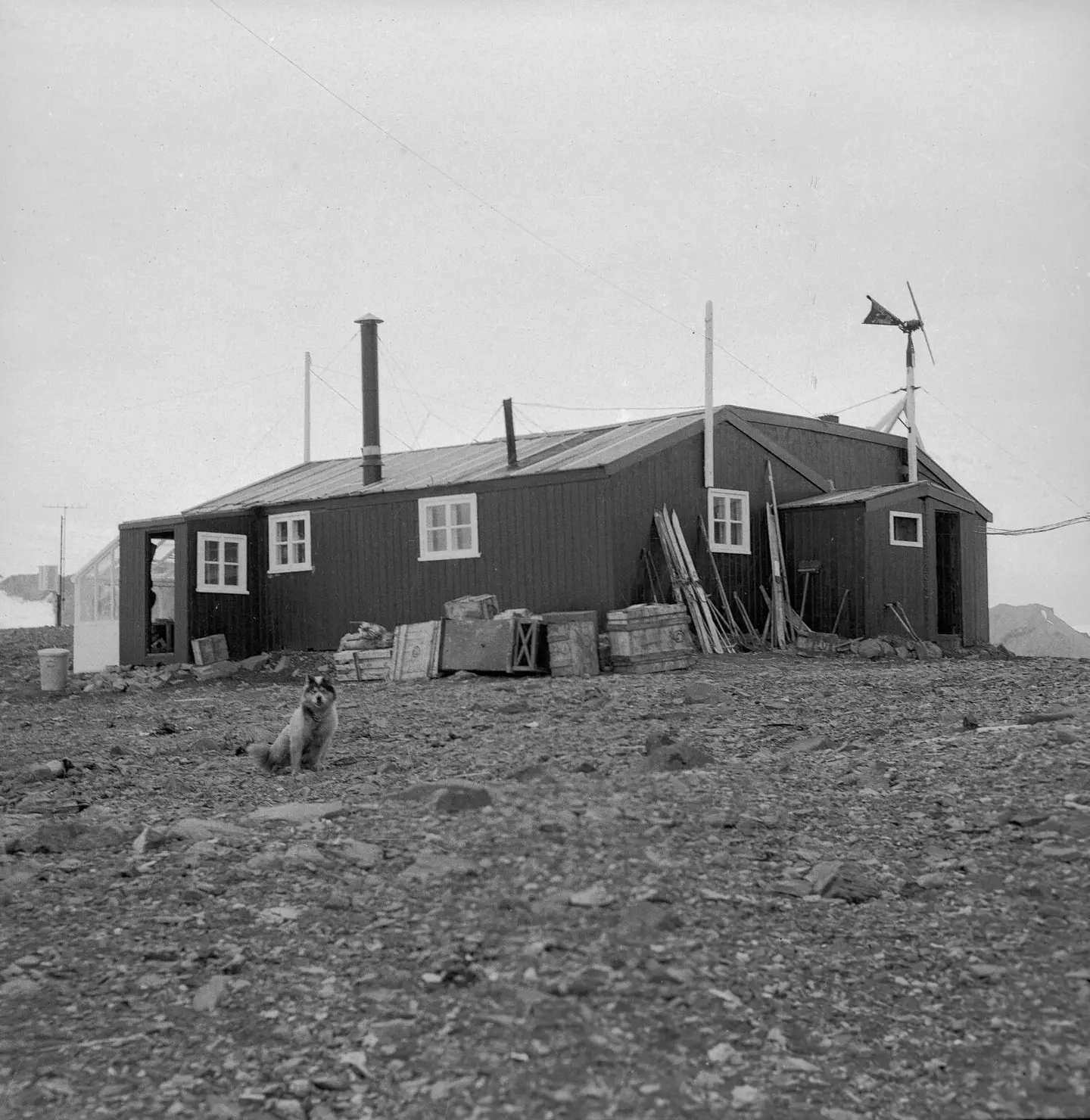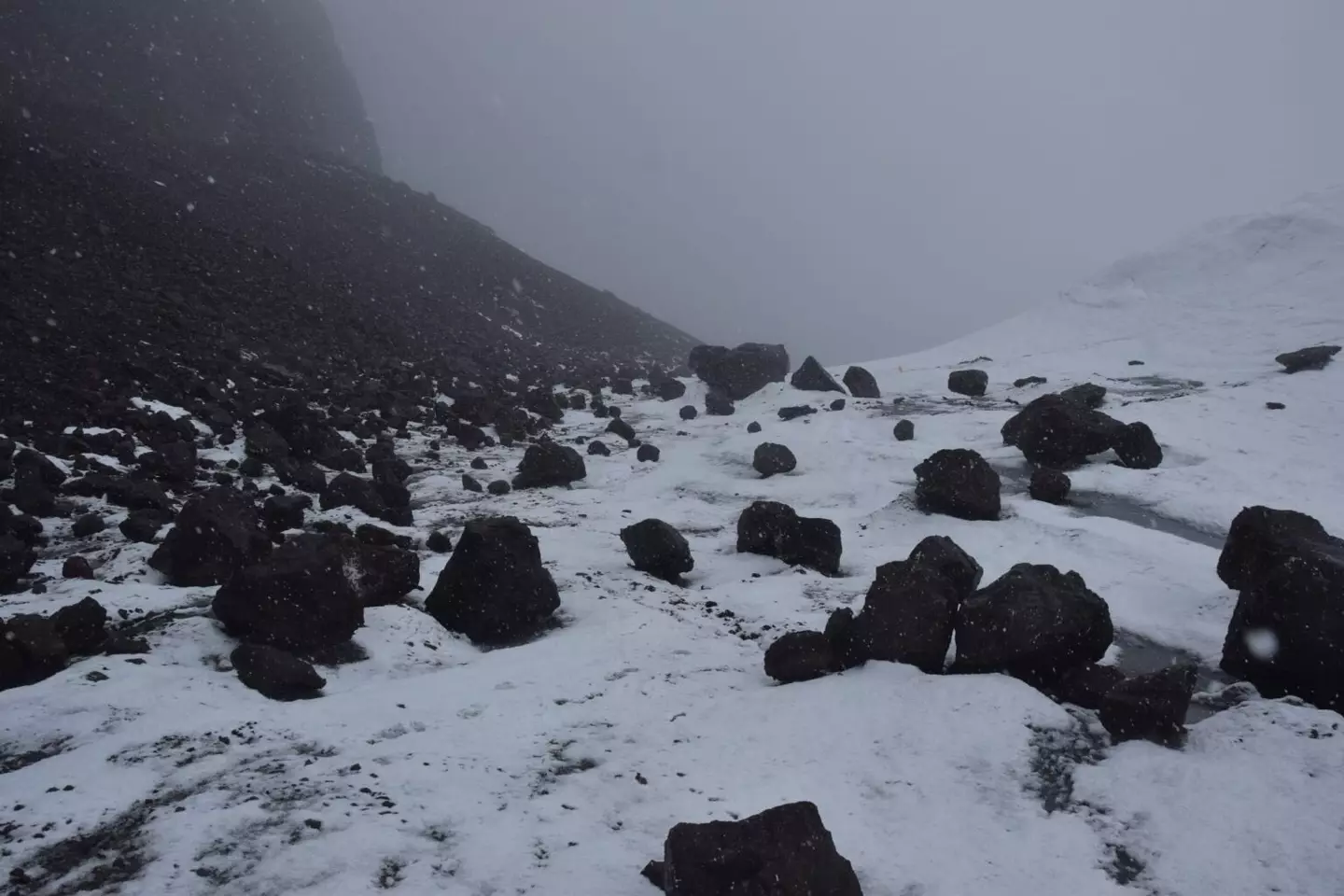
The body of a British researcher who went missing in Antarctica in 1959 has been recovered from a glacier more than half a century later.
Dennis 'Tink' Bell was just 25 years old when he died after falling into the crevasse of a glacier while working as a meteorologist for the Falkland Islands Dependencies Survey (FIDS), now known as the British Antarctic Survey (BAS).
On 26 July, 1959, Tink headed out to climb the glacier at Admiralty Bay on King George Island, just off the Antarctic Peninsula with three of his colleagues and two dog sleds.
He and surveyor Jeff Stokes negotiated a crevasse and believed they were in the clear, but as the dogs showed signs of tiredness, Tink decided to get ahead of them to encourage them to keep going.
Advert

Tragically, the 25-year-old had gone ahead without his skis and suddenly fell through the crevasse. Initially, the team managed to get a rope down to him, which he tied on his belt, and the dogs began to pull, heaving Tink out the crevasse.
However, due to the fact he had tied the rope to his belt instead of his body, he became wedged at the opening of the cavity and his belt snapped, causing him to plummet once again.
This time, when the team called out to him, they didn't get an answer from Tink, and his body was never recovered.
However, in January of this year, a team from the Henryk Arctowski Polish Antarctic Station on King George Island found the body, along with 200 personal items, such as radio equipment, a flashlight, ski poles and an inscribed Erguel wristwatch.

The remains, which were later confirmed to belong to Tink, were carried to the Falkland Islands on the BAS Royal Research Ship Sir David Attenborough, before being flown to London, where DNA testing confirmed a match with Tink's siblings, David Bell and Valerie Kelly.
Tink's brother David said: "When my sister Valerie and I were notified that our brother Dennis had been found after 66 years we were shocked and amazed.
"The British Antarctic Survey and British Antarctic Monument Trust have been a tremendous support and together with the sensitivity of the Polish team in bringing him home have helped us come to terms with the tragic loss of our brilliant brother."

Meanwhile, BAS director Professor Dame Jane Francis described the confirmation of his identity as a 'poignant and profound moment', adding that Tink 'contributed to the early science and exploration of Antarctica under extraordinarily harsh conditions'.
She said in a statement: "Even though he was lost in 1959, his memory lived on among colleagues and in the legacy of polar research. This discovery brings closure to a decades-long mystery and reminds us of the human stories embedded in the history of Antarctic science."
Topics: World News, Science, UK News
